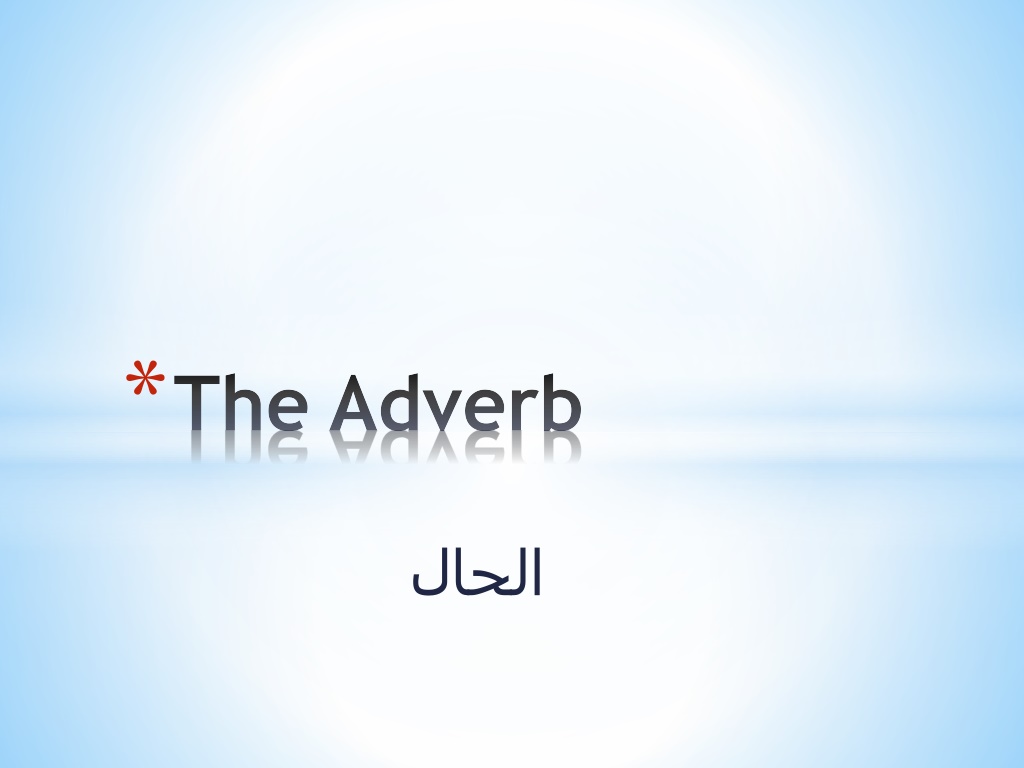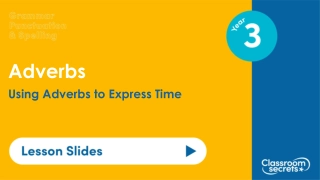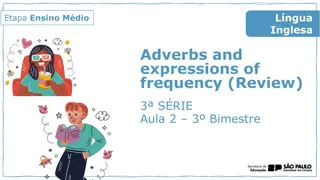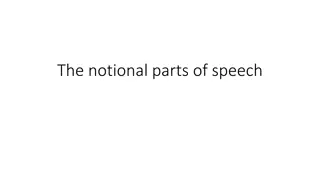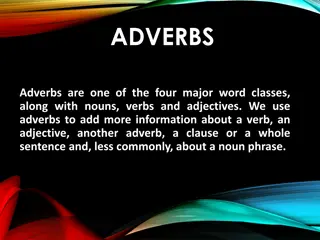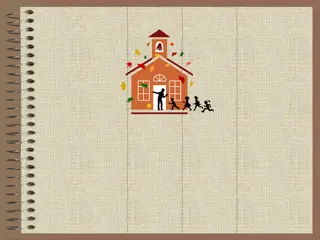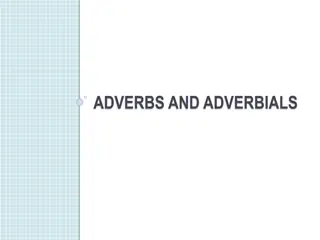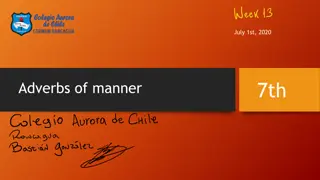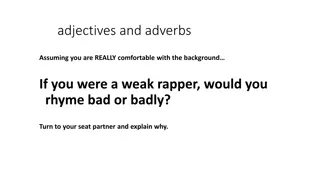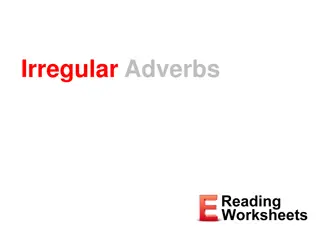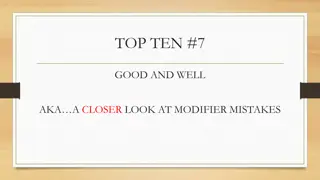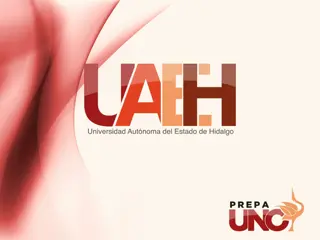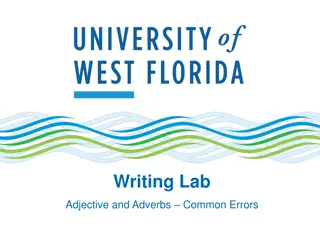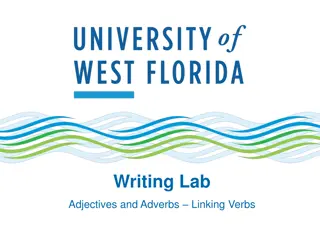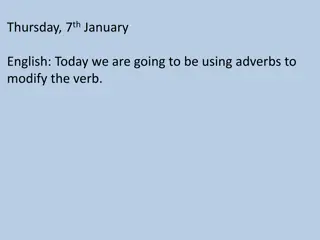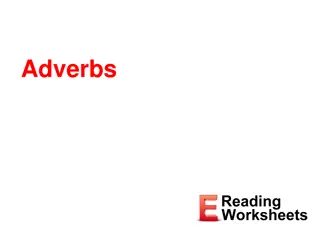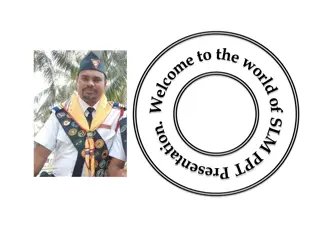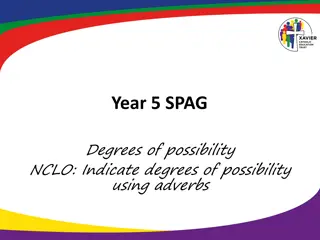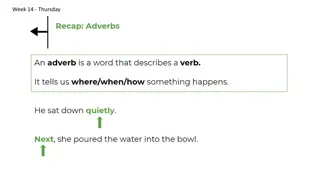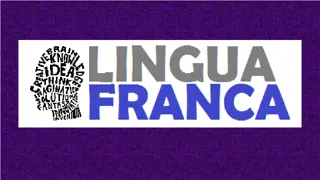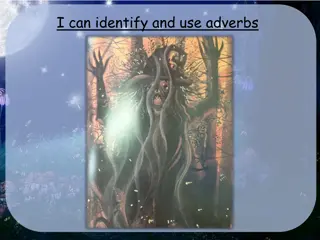Understanding Adverbs and Their Types
Adverbs play a crucial role in modifying verbs, adjectives, and other adverbs to express various qualities or circumstances. They can be confused with adjectives but serve different purposes by indicating time, place, manner, or quality in a more concise manner. Adverbs are classified into categories like adverbs of number, time, place, and manner or quality, each with specific examples showcasing their usage and significance in language.
Download Presentation

Please find below an Image/Link to download the presentation.
The content on the website is provided AS IS for your information and personal use only. It may not be sold, licensed, or shared on other websites without obtaining consent from the author. Download presentation by click this link. If you encounter any issues during the download, it is possible that the publisher has removed the file from their server.
E N D
Presentation Transcript
*1. the adverb is a word joined to a verb, an adjective, or another adverb to express some quality or circumstance respecting it. * . : *Ali writes well well writes *The adverb
*Adverbs can be confused with adjectives, which also modify things. However, adjectives modify nouns and pronouns. If you said "I have a nice dog," dog is the noun which is being modified by the adjective nice. On the other hand, if you said that "My dog quickly ate his dinner," the adverb "quickly" would modify the verb "ate." *In addition to verbs, adverbs also modify adjectives and other adverbs. So, when you say "I have the most beautiful dog," the dog is the noun, beautiful is the adjective describing the noun, and most is the adverb describing beautiful.
*Samia is exceedingly beautiful exceedingly . beautiful Sami speaks very correctly. correctly very speaks correctly . .
*Adverbs generally express some circumstance of time, place, manner or quality. *Adverbs express in a single word what would otherwise require two or more words. . Where in what place )I do not know where that came from.) whence from what place (No one could tell me whence the gold had come.) Too in an excessive degree Elegantly in an elegant matter
*Adverbs are divided into several classes: *Adverbs of number: *Examples: once, twice, thrice First, secondly, thirdly
*Adverbs of time: Examples: Ago Already daily ever Hourly Now Then
*Adverbs of place: Here There Where Hence Thence Upward Downward Elsewhere
*Adverbs of manner or quality: *Such as; well, ill, how, softly, sweetly, etc. *Example: My words were ill-chosen. Adverbs of quality are generally formed from adjectives by adding ly e.g. quick quickly Examples: He is a quick runner. He runs quickly.
*Adverbs of quantity: Very Exceedingly Too Enough Examples: It is too difficult to solve. She is exceedingly beautiful.
*Adverbs of affirmation, negation, and doubts: Yea, yes Verily, truly Surely, undoubtedly, certainly Nay, no, not Perhaps, possible Examples: Perhaps, he ll do it. Verily, he is a man of war. He will undoubtedly come.
*Some adverbs are compared like adjectives: Soon, sooner, soonest Sweetly, more sweetly, most sweetly She spoke more quickly than he did. The following adverbs are compared irregularly: adverb comparative ill or badly worse Much more / Well better superlative worst most best
*Examples: She appears more sweetly than ever before. . She is much better than a week ago. You're driving worse today than yesterday !
*Some adverbs are formed by prefixing a to a noun or an adjective. Afar Ashore Two or more words together are sometimes used as adverbs . Such a union of words is called an adverbial phrase: Now and then At best (If he drops the course now, at best he ll get incomplete, and he could fail.)
Translate the following: * He swims well. *He ran quickly. *She spoke softly. *The child ran happily towards his mother. *I have nowhere to go. *She ran towards me. *He worked abroad. Revision
*This magazine is published monthly. *I am still hungry. *The water was extremely cold. *You are walking too slowly. *This coffee is too hot. * We seldom cross the river after sunset.
